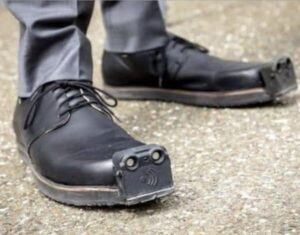We can get so caught up in our own struggles, and the complications that color or daily lives, that we forget there are people out there who have it so much harder than ourselves.
Almost everyone you meet is fighting one battle or another. Some you might know about, others are more secret in nature. That’s why it’s so important to be considerate at all times and never treat anyone with anything less than the fullest amount of respect.
For me, that’s especially important when interacting with those people whose lives are made harder through disabilities. It’s not that they need any special treatment, and I’m certainly not suggesting they should be the subjects of pity. No, I mean simply that they so often serve as inspiring figures, and so should be treated as such.
Of course, one way of showing said respect is ensuring you’re educated as to the challenges faced by individuals who live with various disabilities. Take, for example, the visually impaired…
I can’t think of many impairments that would impact my life as much as the loss of my sight. Our eyes allow us to process the world around us; without them we lose a sense that the vast majority of us have been totally reliant on since birth.

And yet there are, of course, people who have severely impaired sight, not to mention those who are blind.
Needless to say, for anyone living with visual impairment, navigating the world becomes a lot harder. Which is why a recent invention by Australian company Tec-Innovation promises to make such a positive change.
As per reports, they’ve created a pair of shoes, called InnoMake, that use advanced sensor technology to help the wearer avoid obstacles they might not be able to see. The InnoMake shoes have built-in sensors that vibrate or make noise whenever an obstacle is detected, much like the sensors on cars that will beep to warn you of an imminent collision.
According to their YouTube, the shoes have special slots for the sensors, which last up to a week after taking three hours to fully charge.
Not only that, but the shoes can be coupled with a smartphone, allowing the user to customize certain settings, including adjusting the alert preferences or minimum distance for detection.





